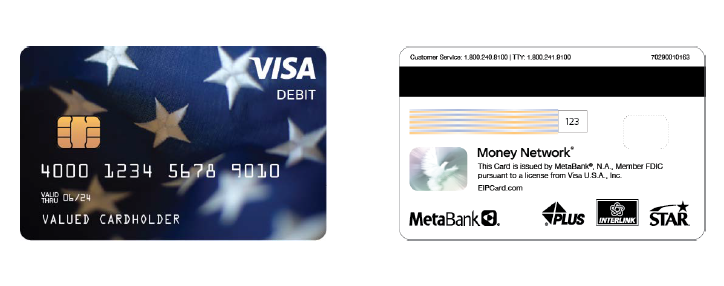The Internal Revenue Service won’t charge people who received an economic stimulus payment on a prepaid debit card in the mail and threw it away because they thought the envelope was junk mail.
The IRS began sending an estimated 4 million economic impact payments on prepaid debit cards last month to people who didn’t have direct deposit information on file with the agency (see story). The IRS had problems with many of the direct deposits since some accounts on file were temporary ones set up by tax prep chains for refund transfers and were no longer active. Other stimulus payments had been deposited in the accounts of deceased or incarcerated taxpayers, or others who lived abroad and didn’t qualify. Under the $2.2 trillion CARES Act that Congress passed in March in response to the economic fallout from the coronavirus pandemic, the IRS and the Treasury have been sending out payments of $1,200 to individual taxpayers, $2,400 to couples, plus an extra $500 for each of their dependent children. An estimated 159 million economic impact payments have been processed.
The agency had hoped the prepaid debit cards would be more convenient than paper checks for sending the economic impact payments. Taxpayers can use the so-called EIP Cards to make purchases, get cash from in-network ATMs, and transfer funds to their personal bank account without incurring any fees.
The IRS and the Treasury Department partnered with a private company, MetaBank, to send out the debit cards, MetaBank was already part of an existing debit card program operated by the Treasury. But the debit cards didn’t go out in the usual Treasury Department envelopes that taxpayers who receive their tax refunds through paper checks are accustomed to seeing. Instead the envelope seemed to come from an unfamiliar entity called “Money Network Cardholder Services” and many people apparently tossed it in the trash, thinking it was junk mail, not realizing the contents could be worth thousands of dollars. In an email to tax professionals Monday, the IRS said individuals who have lost or destroyed their EIP Card can request a free replacement through MetaBank’s customer service department. The standard fee of $7.50 will be waived for the first reissuance of any EIP Card. The company has also increased the limit on ACH transfers to a bank account from $1,000 to $2,500 per transaction
In an email to tax professionals Monday, the IRS said individuals who have lost or destroyed their EIP Card can request a free replacement through MetaBank’s customer service department. The standard fee of $7.50 will be waived for the first reissuance of any EIP Card. The company has also increased the limit on ACH transfers to a bank account from $1,000 to $2,500 per transaction
In an entry added last week to the IRS FAQ page about the economic stimulus payments, the IRS said any initial reissuance fee charged to a customer from an earlier date will now be reversed. Individuals don’t need to know their card number to ask for a replacement by calling (800) 240-8100 and selecting option 2 from the main menu.
The reason why the envelope says “Money Network Cardholder Services” instead of the Treasury or the IRS or MetaBank is that the EIP Card is sponsored by the Treasury Department’s Bureau of the Fiscal Service and it’s managed by Money Network Financial LLC and issued by Treasury’s financial agent, MetaBank.
The prepaid debit card will arrive in a plain envelope from “Money Network Cardholder Services.” Inside the envelope, the Visa name will appear on the front of the card, while the back of the card has the name of the issuing bank, MetaBank NA. Information included with the card will explain that the card is an EIP card. For more information, visit EIPcard.com.